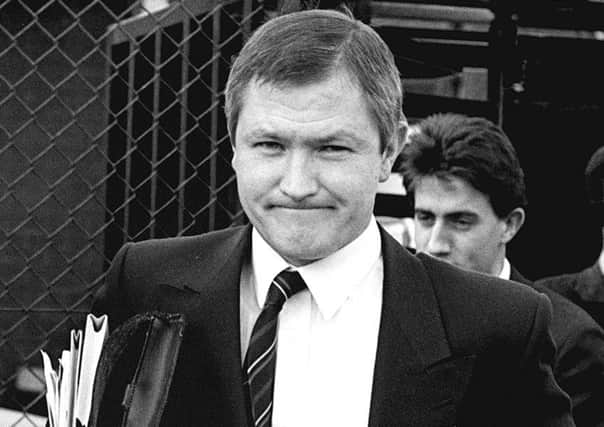Secret war against the IRA: '˜You cannot have transparency and secrecy at the same time'


The biggest dilemma was legal. A Home Office circular 97/1969 (12 May 1969) contained guidelines that catered for informants reporting on burglaries and not agents reporting on terrorist murders.
Or an investigative-led approach by CID and not an intelligence-led approach by SB.
Advertisement
Hide AdAdvertisement
Hide AdThe de Silva Report (2012) into the loyalist murder of Patrick Finucane in 1989 reviewed this aspect, acknowledging that the Home Office guidelines were designed for ordinary crime. They were of no use in the Troubles.
Guidelines of this kind usually are founded in a statute law but these originated from the deliberations of a committee of GB-based police chiefs that predated the Troubles. As the guidelines were not legally binding the RUC formed the view that they could not be fully adapted for a conflict context.
The reasoning was that a well-placed agent and the police agency managing him could not comply with such guidelines in any meaningful way and still have the agent providing information on the terrorist organisation of which he is part. To comply would have put the public in jeopardy.
The SB model and its core function came without legal instructions. The criminal justice system was also unkindly disposed. Throughout the Troubles no legal body, international human rights-based organisation, law or national guidelines had any clue about how to legally manage agents. Yet at the same time they commend this approach. Nowhere in an irregular war is a legal framework and guidance needed more than for well-placed agents.
This is as relevant today as it was in 1969.
Advertisement
Hide AdAdvertisement
Hide AdBritish Army Colonel Robin Evelegh in the early 1970s identified these legal shortcomings. He expressed his concerns in a book, arguing that a lack of law hampered security, especially in intelligence. Another is retired Head of Special Branch, assistant chief constable Raymond White. He claims the police consistently raised this issue with Westminster but it was simply too difficult to do.
Evelegh and White had identified that having no statute law for agents and covert policing in general invited contrary legal arguments at a later date.
These would contest the actions of police at the time. They predicted that lawyers would allege, on behalf of their clients, that things should have been done differently. As when what was done failed to prevent a certain outcome, such as a terrorist murder. No law or guidelines and intelligence based on foreknowledge made this inevitable. Evelegh and White knew that this left the police vulnerable to retrospective accusations. They also raised concern that the criminal justice system worked against prosecutions resulting from covert operations.
As Raymond White says: ‘We’d have much preferred a law on the statute books specific to agents from which we could have drafted guidance. Not having these made our job more difficult. As it was we had to do without. We’d no other option.’
Advertisement
Hide AdAdvertisement
Hide AdWhite says he raised the legal issue with Prime Margaret Minister Thatcher, but she was unable to help. According to White, her view was to: “Get on with it and don’t get caught as what you’re doing is working well.”
White’s view is that the Prime Minister was not implying that SB was doing anything unlawful or that she condoned unlawful activity. To clarify ‘don’t get caught’,
White explains that this refers to the approach not attracting attention from which legal arguments disputing what was done would result.
Thatcher’s thinking was wishful. White, on the other hand, knew the police would be ensnared in legal and political controversy once the conflict ended. Yet, not to employ the tactic would cost more lives. With no statute law the police used the Common Law principle and fundamental policing principle of protecting life.
Advertisement
Hide AdAdvertisement
Hide AdAlthough looser than statute law it evidences the integrity of recruiting and running agents (and any covert operation) was manifestly lawful and ethical because its purpose was always to protect life. If life was lost it was not by intent or malice aforethought. The covert world only has so many strings to its bow. For it to be effective it needs to be protected for all our sakes and not left open to forensic scrutiny each time a terrorist is put before the courts. This is the dilemma for the criminal justice system in any democracy facing terrorism.
In putting 20,000 before the courts for Troubles-related crimes, the police was doing something right. The trick for any democracy is to create the parameters for the intelligence world and then have the populace trust the oversight agencies and the courts to police the system in confidence on their behalf. You cannot have transparency and secrecy at the same time.
• ‘Secret Victory: The Intellligence War That Beat The IRA’ by Dr William Matchett – available from www.amazon.co.uk and No Alibis books Belfast from 17 November priced £12.95.